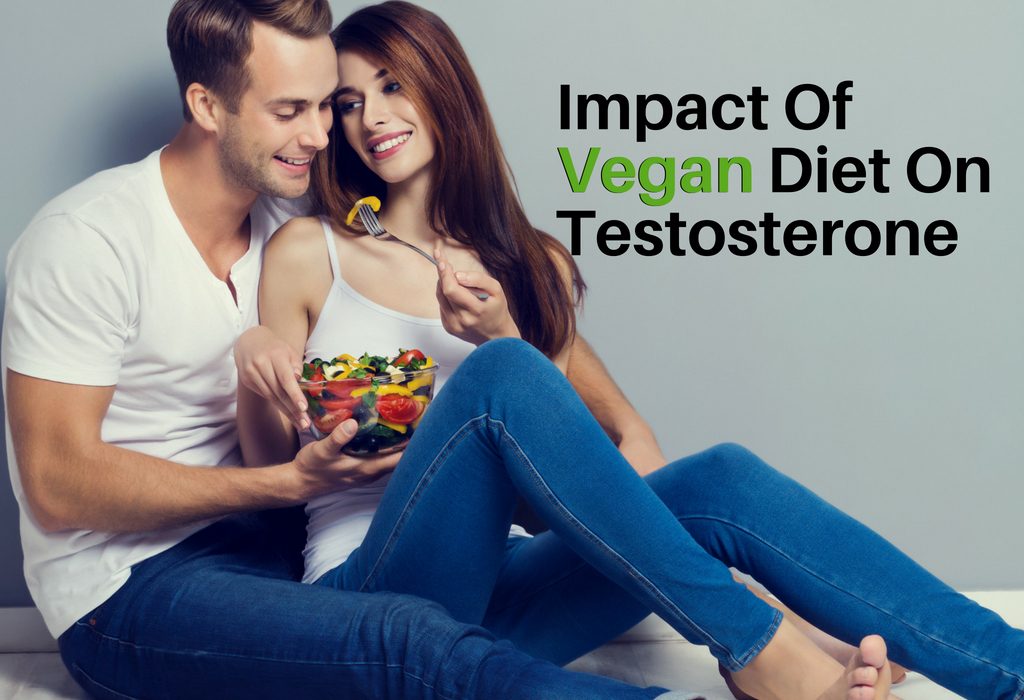Impact Of Vegan Diet On Testosterone
It is a popular notion that diets rich in high quality animal proteins adds to the masculinity and manhood. In fact, a lot of individuals who switch to vegan diet also claims to lose muscle mass, stamina and energy levels; but is this just a myth or it has some reality to it?
According to a clinical study, significant reduction in the serum testosterone levels has been observed in males who transitioned from non-vegan diet to vegan. According to another study, strict vegans have about 6% lower serum testosterone levels as compared to males who consume animal proteins on regular basis. But it is also noteworthy that there is enough conclusive evidence that suggests otherwise as well – i.e. vegan males have the same (and in some cases higher) serum testosterone levels as compared to their non-vegan counterparts.
Why plant-based diet may reduce serum testosterone levels?
There are a number of reasons and scientific explanations that may brief how plant-based diet suppress natural secretion of testosterone:
- The percentage or proportion of fat is lower in plant-based diet and it is no surprise that testosterone are steroids in nature (i.e. require fats for their synthesis)
- Plant based diets are rich in PUFA (polyunsaturated fatty acids) – that are generally regarded as poor-quality fats that are known to suppress testosterone hormone as well as thyroid hormone
- Certain components of plant-based diets are actually anti-testosterone in nature. For example, flaxseed, processed grains and soy along with several other plant components are regarded as goitrogenic and/or phytoestrogens. In other words, these elements when consumed, acts as estrogen inside your body; further reducing the activity or action of testosterone on the tissues.
- Plant-based diets are rich in fiber, which is another dietary component that is associated with anti-testosterone activity by elevating the serum levels of sex hormone binding globulin (SHBG) – further reducing the bioavailable testosterone levels.
- Plant based diets are devoid of vital micro and macronutrients that serves as a catalyst in the production of testosterone – such as vitamins like Vitamin A, K & E or vital compounds like creatine, taurine & carnitine.
Is it possible to maintain normal serum testosterone levels on a vegan diet?
It is generally believed that vegans have comparatively lower serum testosterone levels (both Free T + Total T levels) and higher serum sex hormone binding globulin (SHBG). But it does not indicate that it is not possible to maintain adequate T levels on the vegan diet.
Healthcare providers believe that well-balanced plat-based diet can also help in maintaining normal serum testosterone levels as plant-based diets are rich in carbohydrates, antioxidants, minerals & vitamins – all of which are helpful in stimulating the endogenous production of testosterone.
How to maintain normal testosterone levels on plant-based diet?
- Balanced calorie and nutrient intake: Since plant-based foods are lower in calories and certain nutrients, make sure to consume healthy portions to maintain adequate intake of all essential nutrients
- Avoid PUFA: As mentioned before, PUFA suppresses the production of testosterone; therefore, it is vital to avoid PUFA sources such as flaxseed, vegetable oil, seed oil etc. On the contrary, maintain healthy intake of coconut oil, avocadoes, olive oil & palm oil
- Avoid excessive intake of fiber-enriched grains: As discussed, low fiber intake maintains low SHBG levels that leaves more testosterone available for tissue consumption
If you are switching to a vegan diet, speak to a registered dietitian to ensure a healthy transition
